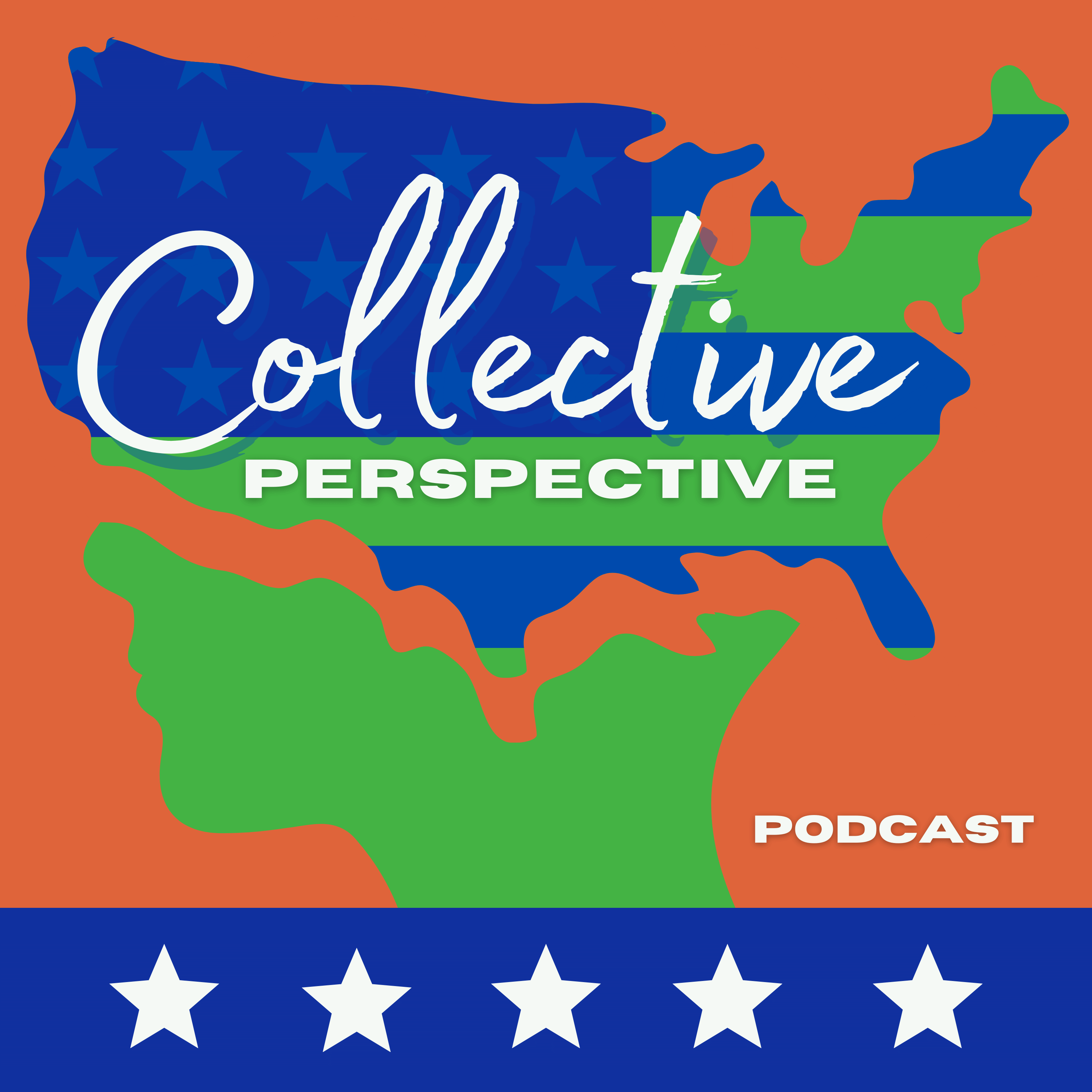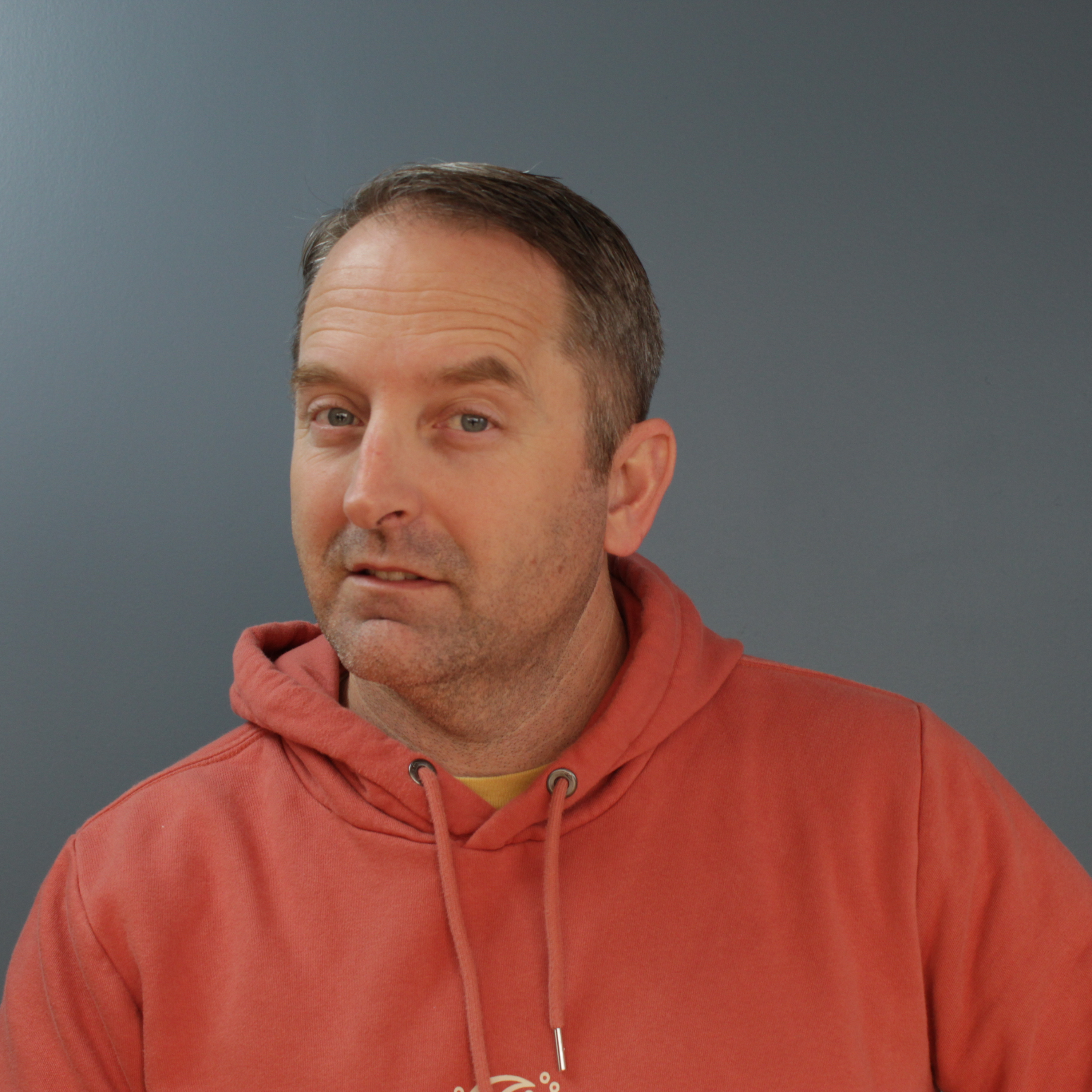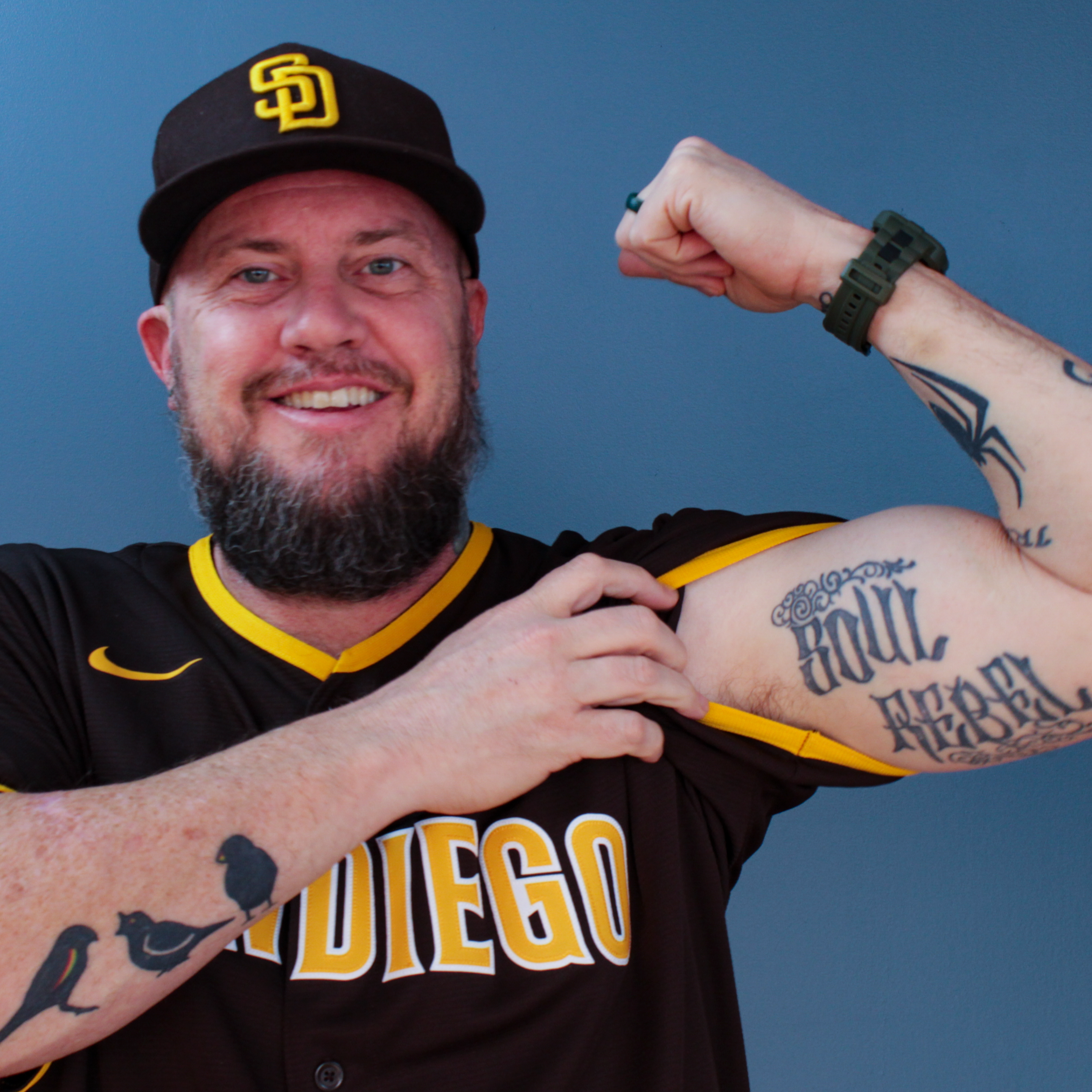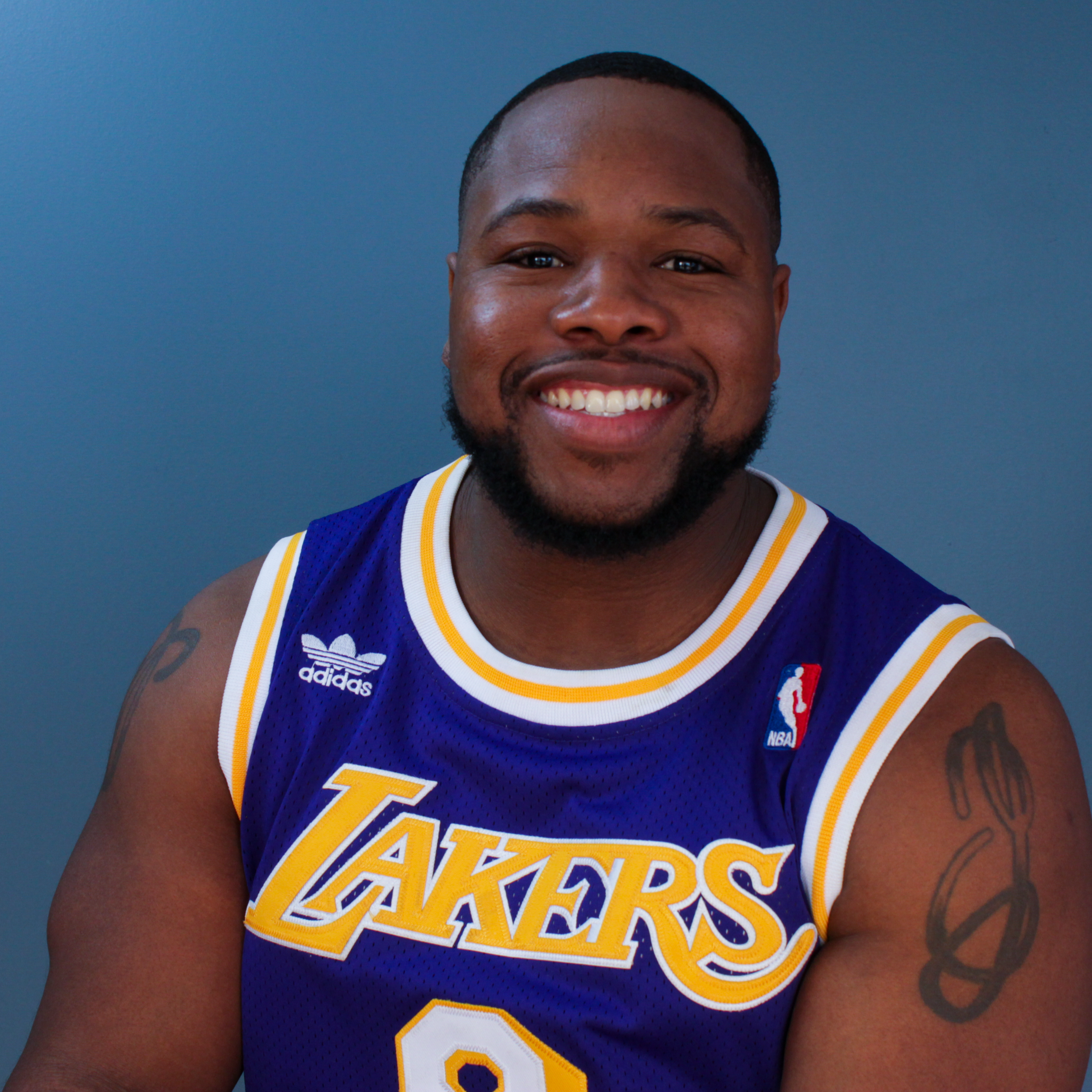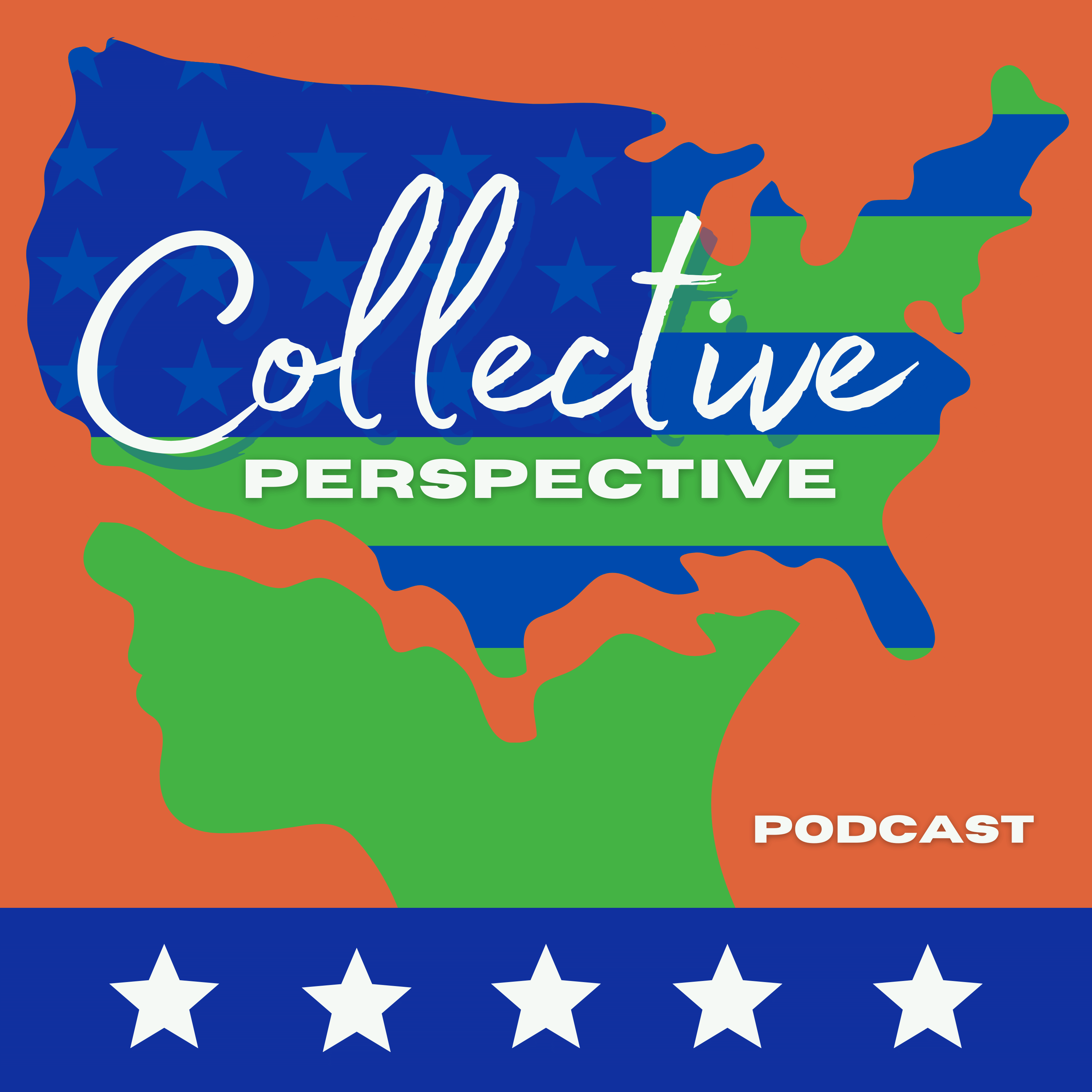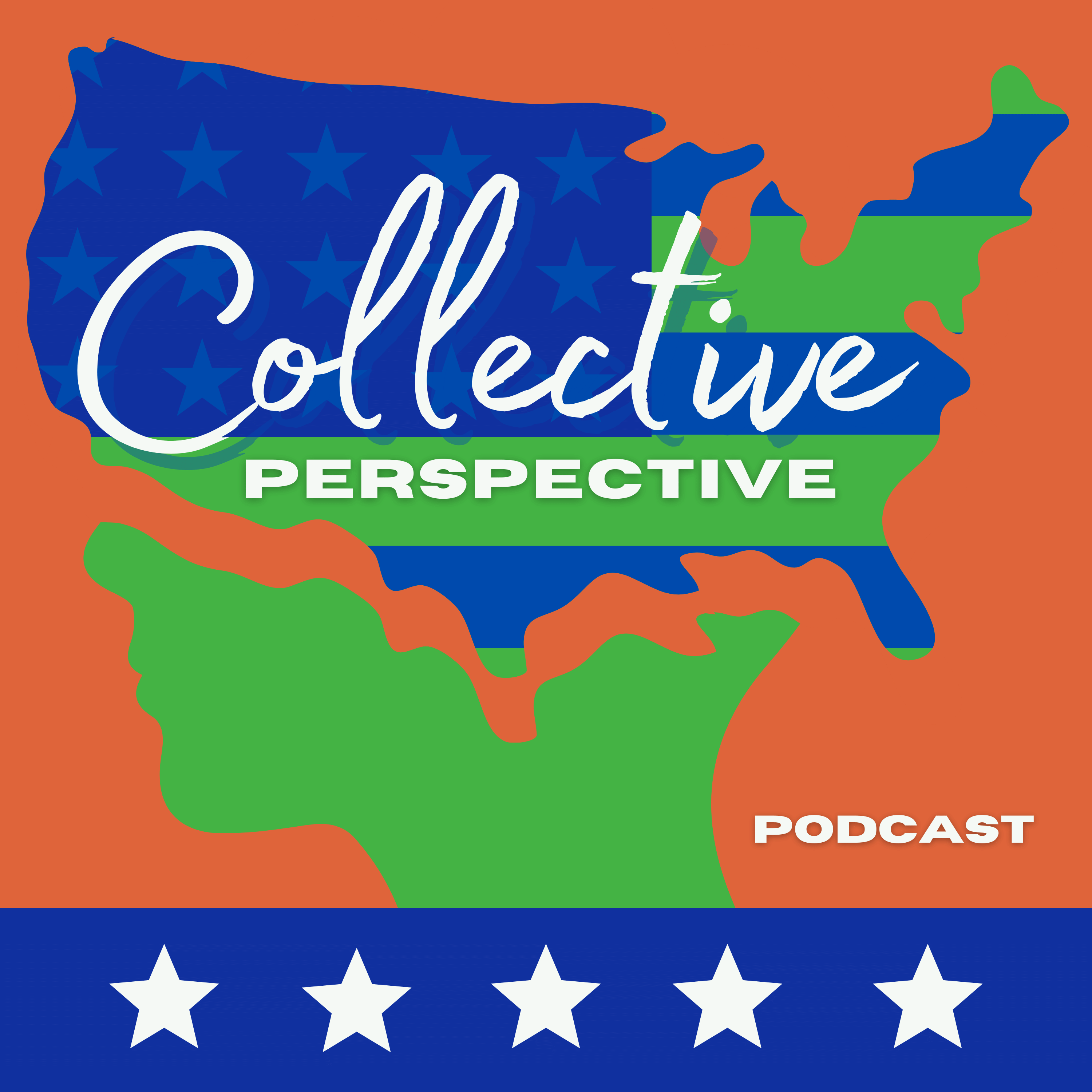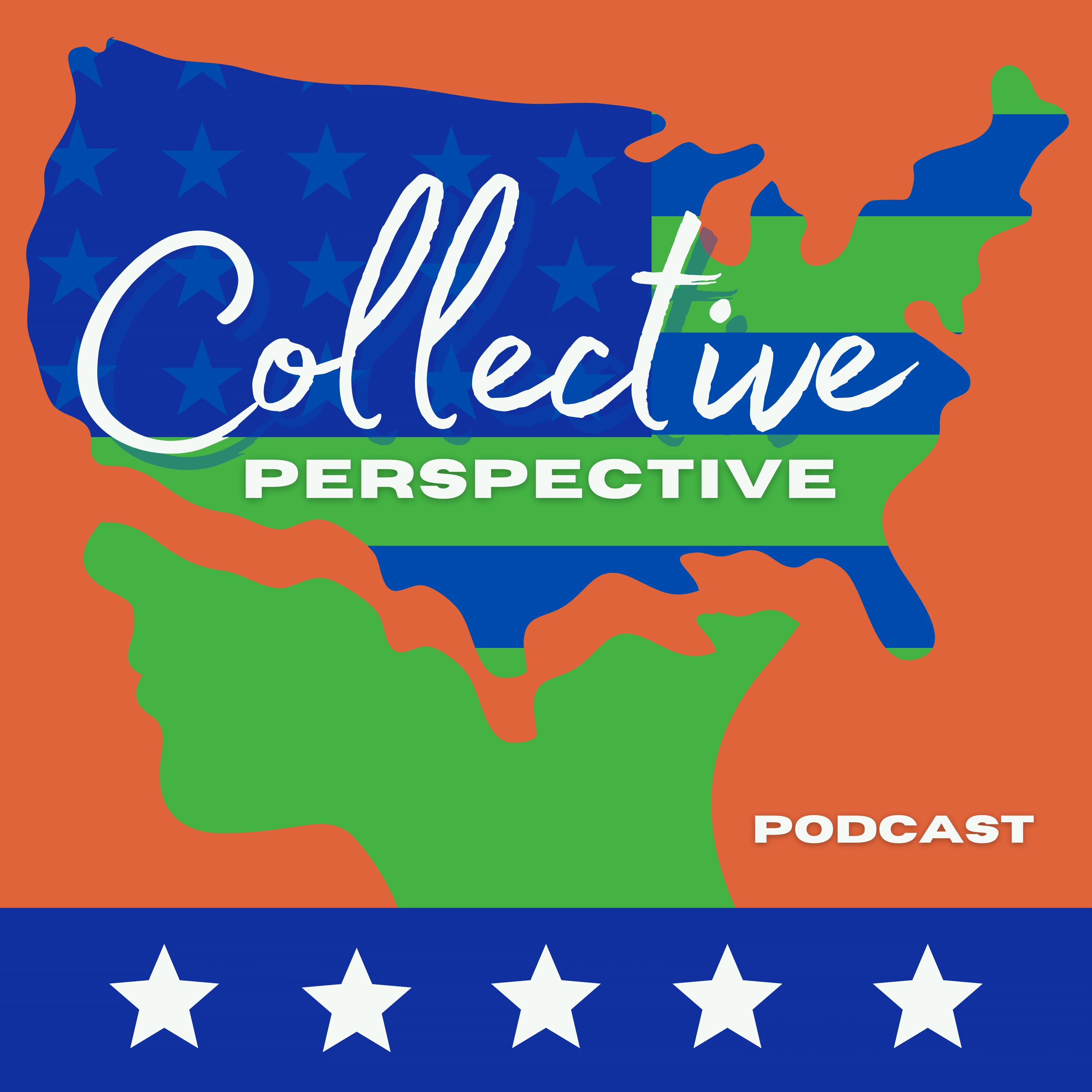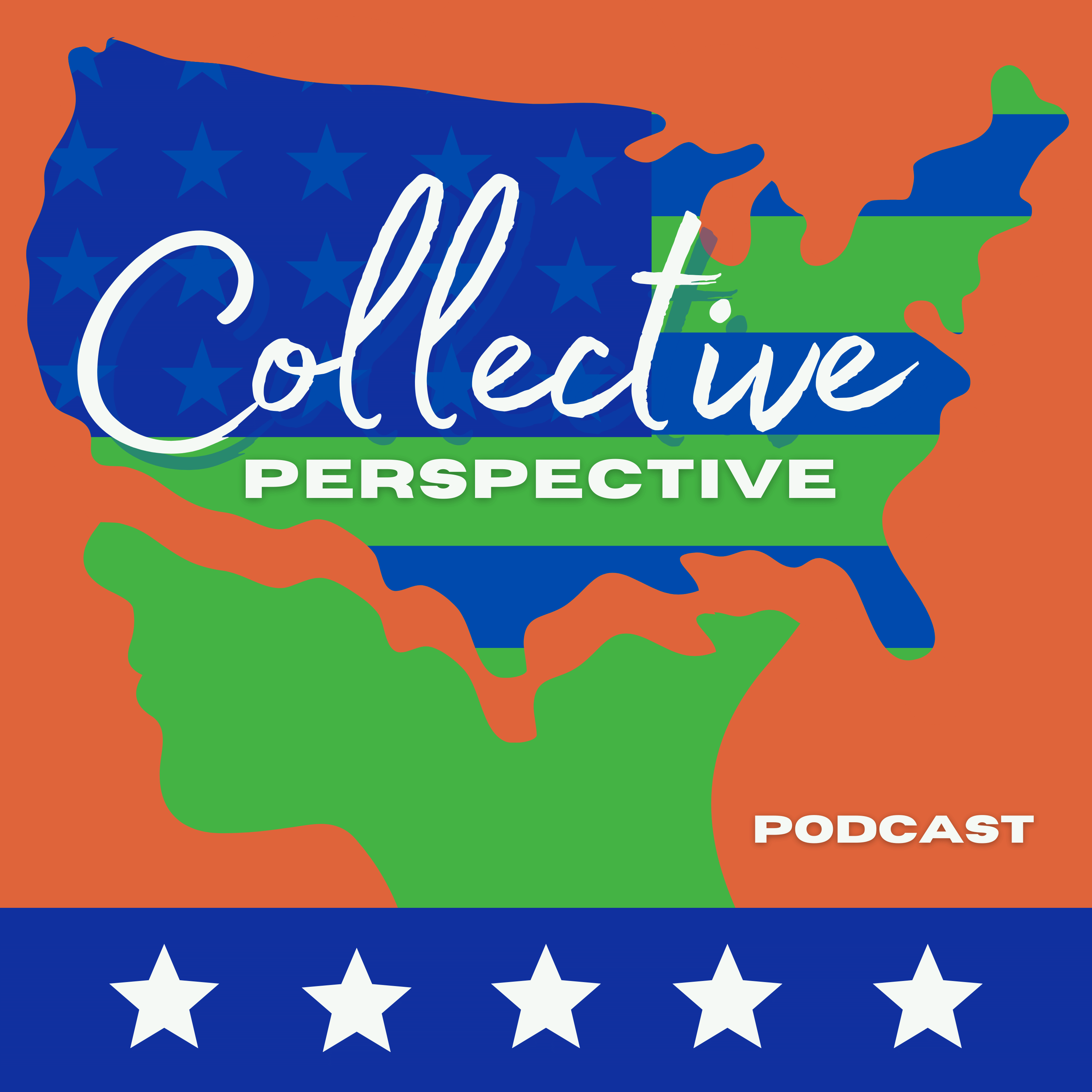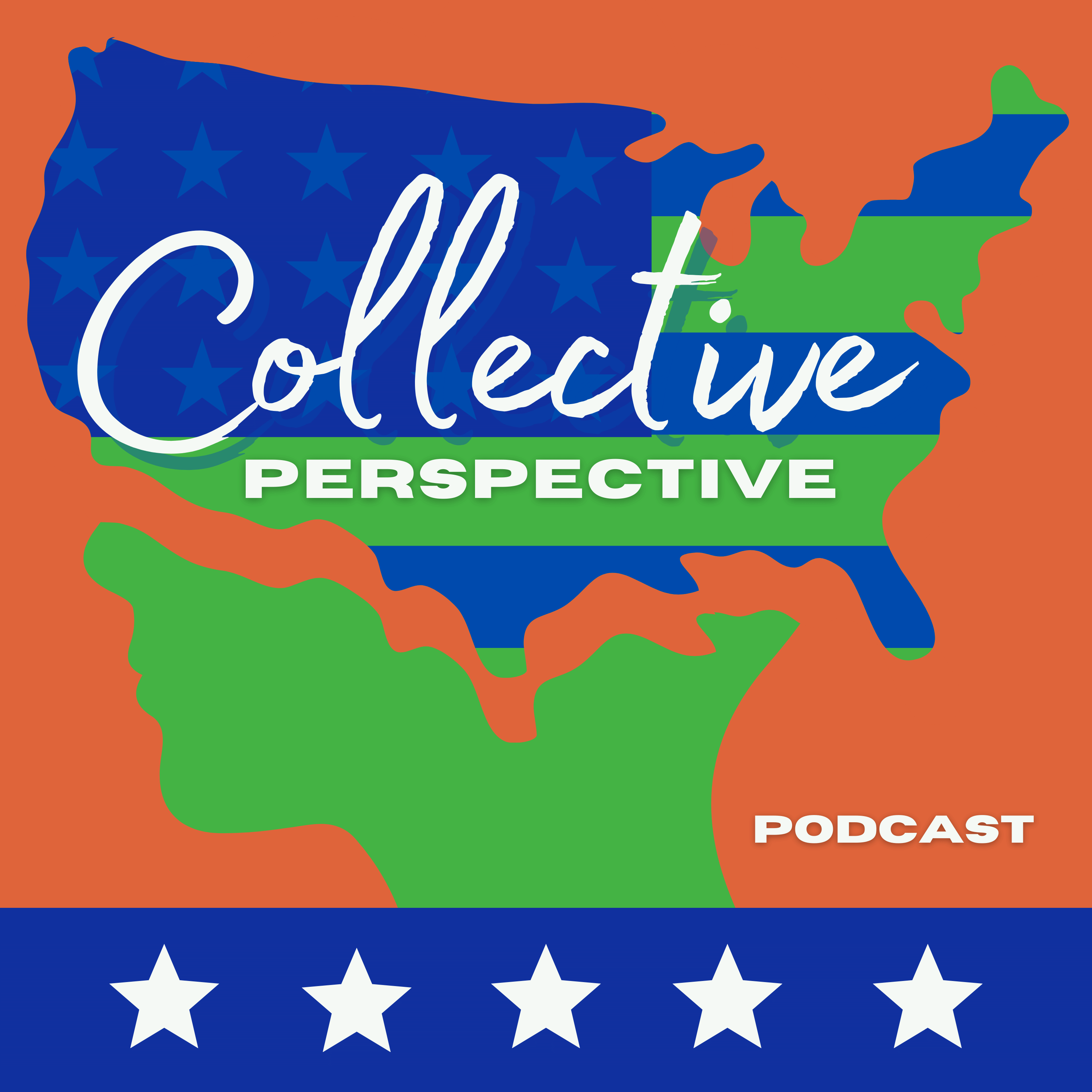Episode Transcript
Welcome to a new season of the Collective Perspective Podcast. As we dive into this season, we're focusing on the pivotal upcoming election. Widely considered as one of the most important of our lifetime. Join us on this journey as we navigate through diverse perspectives, dissect key issues, and explore the profound impact on our shared future.
Get ready for insightful discussions and thought provoking insights. Welcome to the Collective Perspective Podcast season three.
Hey everybody, welcome back to the Collective Perspective podcast. This is Jeff and today we have several things going on, but let's first say hi to Travis. Hey, welcome to the podcast guys. This is Travis. And Jawad. Hey, I hope everyone's okay. Today in the studio we have a good friend that was on our podcast before, Tatiana Yoges.
Hello, this is Tatiana. And she brought some friends, Melissa, and this is Nikki. Today's podcast focuses on overdose awareness and overdose awareness day. I don't know if you guys know this, but August 31st is overdose awareness day, August 31st. I did not know that. Yes. I didn't know until we scheduled this podcast.
And I was like, well, that's definitely a huge topic and contributes to lots of things like homelessness and Drug trade and all that kind of stuff that's going on in the United States and during election time That's an important thing to talk about who's gonna stop it or who's gonna at least Limit it or let's put it this way who's gonna promise to stop it and then might do it.
Who knows Who's gonna believe them? I say who's gonna put their attention and focus on it ladies Would you like to introduce yourself a little bit further than your name? My name is Melissa Salazar Cason, and I am a Certified Recovery Peer Support Specialist and the co founder of Underground Recovery Jax.
Which is a harm reduction organization, street based outreach here in Jacksonville, Florida. And this is Nikki. I am also a Peer Support Specialist and the Director of Outreach at Rebel Recovery Jax. We're a recovery community organization and we help people who are struggling with substance use issues to kind of put the pieces back together.
In 2020, right before the pandemic, Melissa and I actually co founded Underground Recovery Jax together. This is before we even had Rebel Recovery. And that's The street outreach program where we're directly communicating and supporting people who are using drugs and unhoused. And I know this is a tough topic for people, but I just wanted to let you know the importance of being able to talk about this topic and having this topic out in the forefront of issues that are going on the United States.
Of course, we know homelessness is a thing. Homelessness is paired with drug overdose in a way. There's a lot of those that are out there trying to. on or are addicted to drugs and which puts them out on the streets and make them homeless. Super important. One thing I want to bring up is that the CDC recently estimated that over 107, 500, 000 drug overdose deaths happened in the United States in 2023.
So we haven't had any data for 2024 yet, but We will. Over a hundred and seven thousand deaths that we've lost our loved ones to fentanyl poisoning or opioid overdose. It's super important to raise awareness on the importance of having Narcan and being trained on Narcan training on how to save a life and where to access it.
Remembering the ones that we've lost to this, to this drug overdose is epidemic, right? Since, uh, 2019. The way that I met Nikki was, I had just moved here from Las Vegas. I'm originally from Houston, Texas, and I wanted to be able to volunteer. I was, um, missing some aspects of my life with social connection and I wanted to get involved in something more.
So, I got on Facebook, and I just typed in the search bar, volunteering in Jacksonville. And I happened to stumble across Nikki's profile, Underground Recovery Jax. At first, I thought it was a non profit organization. When I reached out to her and told her I'd like to see how I could help her to volunteer, she told me, I'm just one person out here in Jacksonville trying to beat this epidemic.
And I said, well, how can I help? I've done street based outreach before back in Houston. The outreach that I was trained around was through human trafficking and sex worker outreach, right? Nikki was giving out Narcan out of the trunk of her car. I was working as a peer support specialist in Nassau County, so didn't know where our demographics would connect, but eventually they did.
And I wanted to learn more about harm reduction. I wanted to know what Narcan was, what it was about. Coming from Texas, the opioid epidemic didn't hit us as quickly as the West and the East Coast. So when I got here, it was completely green. So the more I reached out to Nikki and the more I started following her page and following the education materials that she was putting out there, I was intrigued about how could we get out into the community and do more.
We met our mentor, Tim Santamore, who is the founder of the Florida Harm Reduction Collective, and he helped us to get access to the Narcan. And we hit the streets, out of the trunk of our car, running off with coffee and compassion. No funding. We met people where they were at. And we gave them the tools that they needed to stay alive.
We gave them access to resources. We were doing direct peer support, basically. And just helping people find their pathway to recovery when they were ready. Right? So for 2019, all during the pandemic, 2021, up until 2021. Our participant base started growing, our friendship started blossoming, and we ultimately came to the decision last year that we would finalize what we were doing and become a non profit organization.
So we've been able to see just our impact through maybe 115 participants over the last four years. Going into five years up to like 200. Oh my goodness We've been able to hire a program manager And so it's beautiful to see how we've been able to impact duval county and reduce some of the overdose High overdose zip codes in jacksonville and to see some changes and some lives being turned around.
Amen to that Yes, that was uh, that was pretty good. That that sounds uh, You guys have really put in a lot of hard work into getting this thing going for you. So that was a lot more detailed than my presentation. Excuse me, you know, please forgive me. What is Narcan? Narcan is the opioid overdose reversal medication.
That's the nasal spray. The original comes in a vial. It kind of looks like insulin and it's called naloxone. So that's basically the The raw form of Narcan. Narcan, you just spray it up somebody's nose if they're experiencing an overdose, and it brings them back to life. And sometimes it'll take two or three.
We've had some people tell us it took seven individual units to reverse somebody, which, which is huge. That means that the drug supply is tainted with other things. like tranquilizers and benzos. Sometimes it works with one or two and sometimes you just got to keep Narcan ing them. Um, but yeah, there's a couple other things out on the market right now.
There's, so Narcan is the nasal spray and it's two milligrams each. And now there's one on the market called Cluxado. It's eight milligrams, which is a huge dose and can throw people into a massive withdrawal because it's not two anymore. It's eight. It's eight, so basically, the drugs are being knocked off of the, the opioid receptor in the brain.
Causes a lot of withdrawal, a lot more than somebody would experience if you only gave them one, uh, nasal Narcan that was two milligram. There's, there's an auto injector called Zimhi, um, and a few other things on the market, but Narcan is the, the household name, like most people know about Narcan. Yes, that's, she's exactly right.
The Narcan, it saturates the opioid receptors and knocks off the opioid, but it only lasts for a short time. That's why they have to keep redoing it because sometimes the opioids will last longer. So once that Narcan wears off, then the opioid will reattach to the receptor and it will put them back down again.
That's why when I was doing the ER work, there was a lot of, we had to watch people until they were. Until we knew that the, they were in the clear or safe. And sometimes people would, once they, once they got that Narcan and they were feeling better, they would say, all right, I'm good. I want to leave. You can't make people stay.
And if they're ready to leave, they can go against medical advice and walk out. And then once they walk out that door, if the drugs, or if they do it again, they'll wind up right back in with us. And we'll do the same thing over and over again until, Either one, they are, come down from it and are able to be safely let go from the hospital or the ER.
We do try, I know when I was working in the ER that we would try to get them into a recovery house or Some sort of assistance or for addiction in particular and not everybody accepts it and Those houses have limited resources and limited space themselves that I saw. Absolutely So a big part of what we do like what that Incidents looks like when people are on the streets and they don't want to call EMS They don't want to call the police We teach people how to keep each other safe because we know that they don't want to call the police.
They're afraid You We teach them about how the, the Narcan affects their brain, right, and they can go back into an overdose state and, uh, go unconscious again. So we teach them about, like, staying with them for at least 90 minutes after the incident so that they make sure that their friend stays alive.
And just kind of educating them on the laws so that they know what their rights are and how to navigate certain systems and situations while trying to, like, minimize their interactions with the police and the, the harm that they're causing. Good Samaritan love. Good Samaritan. Can we go ahead and have one of you give us the technical definition of what is an overdose?
Or at least an overview of what an overdose is and the different types of overdoses? Narcan only applies to opiates and opioids, so it can be anything from fentanyl on the street or Or morphine, maybe they have um, a lot of a prescription medication like oxycodone and they forget that they've taken it already and they've taken too much and they end up in an overdose state so um, basically what happens is that too much of the drug is flooding all of the pain receptors.
So all of the pain receptors in the brain are binded with the drug. And so when you introduce Narcan or Naloxone into the system, it comes and knocks though the drugs, basically that, that chemical off of the receptor and takes its place because it's stronger than whatever medication or drugs. Those receptors are not just pain, but they're also pleasure receptors.
It also works for hydromorphone or Dilaudid, which is a big one that a lot of people, When they come into the ER, um, my pain's so bad, nothing works except that one with, it starts with a D. That's, you hear that very often in the medical community. Codeine as well. Codeine, morphine, heroin. It's also important to know that like Narcan, if you give it to somebody and it's not an opioid overdose, it's not going to harm them.
So you're not really taking any chances, unless there's like a rare case where they're allergic to it. to it, which you wouldn't know anyway, cause they're unconscious. And like, I don't know how many people know they'd be allergic to naloxone or Narcan. Um, but yeah, it doesn't hurt people if that's not really what the situation is.
What other types of overdoses are there or do you guys work with? Alcohol, alcohol poisoning. You know, that's the only other overdose that I can think of. Um, oh yeah. Amphetamines with stimulants. Um, you can over amp. And the benzodiazepines like Valium and Diazepam Xanax, that takes a different medication, but I don't think there's A readily available reversal for general population use like the Narcan.
I think you would have to be, uh, go to the emergency room, hospitalized, get a charcoal ingestion or something like that for, for those type of medications. I think that one is called Romazicon. Yeah, so typically when somebody over amps or they overdose on an amphetamine or methamphetamine, um, I think It's kind of more of a holistic approach.
Like basically have them in a calm, quiet room, put a cold towel on their head. Um, just like try to calm them down. Essentially. I didn't know it was that involved. Um, when you get to it, we had a previous episode and it's like a trip sitter when you said that the trip sitter and, and I guess it's more, and now I'm getting a different understanding of what the trip sitter does, how, uh, how the person.
that's watching the person have to overdose, help them in that process to not only get through it, but recover. When you say trip center, I think about psychedelics. There's actually peer support trainings that you can take to become a trip center and like help the person experiencing, um, that hallucinogenic experience.
He was referring to a hallucinogenic con. Oh, that's what that. Oh, it's different. Trip sitter is more of someone that keeps you on a positive side, keeps it fun. And if you start to go negative mentally because it's more of a mental thing that keeps you from going south. And there are a lot of, I think a lot of that is going to be where you people that do the Huayasca route or down in like Central America when they're on, I think, uh, some of the, Celebrities have gone down and done stuff like this.
Um, and there is somebody that guides them through it. It's a, it's a, it's almost like a tour guide through your mind. There's some actually in Florida. They're pretty accessible. I didn't know they had like a program where they train you and you get certified. It's not, it's not well known, but it's out there.
Yeah. But basically there's almost the same thing for fear taking opiates, right? People look after each other when they're on housed and using drugs. And so we talk about harm reduction methods a lot. So like if you and I were going to use together, like maybe you would use first and I make sure that you're okay and that you're not overdosed.
And then I would go. So we're not doing it at the same time. So it's just a simple strategy to help keep each other safe. So it looks like or it sounds like you guys are along with helping people that have overdosed or teaching them how to overcome that overdose. You also teach them how to be at least safe if they are going to do these drugs.
I mean, we can't make somebody do something that they don't want to do. That's, that's just a big part of free will and freedom in this country. I was reading an article about how, how it is possible to have addicts go back to regular doses that do not. Affect them in such a way and they're able to have a sustainable life doing so.
Oh, yeah, that's definitely called harm reduction Programs are available in places like canada and switzerland where they have basically a medication dose And they're still on the drug, but they're able to function because they don't have to go to the street, right? They don't have to expose themselves to all these other things and they can still live a full life and be productive It's like micro dosing shrooms Another prevention tool that we provide is fentanyl test strips.
So we know that every drug is contaminated, could be possibly contaminated, but we provide this test strips so that way individuals will know if there was fentanyl in their supply. So we have all this awareness, we have all this stuff going on, all this great stuff towards preventing it. Is it getting better?
Yes. Or is it getting worse? It's hard to say in my opinion. It's just like every time we take a step forward, it seems like we take two steps back, especially with legislation. In Oregon, they actually decriminalized drugs for about a year. And then a couple months ago, they took that legislation out and they went back to criminalizing drugs.
But they didn't really give it enough time, right? And they weren't modeling their programs after successful programs, right? All of Portugal has Decrim. There's a perfect example of something that's been working for decades. And they gave it a year. That's not enough time for you to see the effects of any study, or anything.
Not even vaccinations? No, no. Just thought I'd throw that in there. So we're here to celebrate, I know I put on hair overdose a month, but it's actually a day, right? We can celebrate all year. What type of things go on during that day, and when was it first established? So in 2001 in Australia, by Sally Finn, and then she had managed a needle syringe exchange program at the Salvation Army in St.
Kilda, Victoria. Different things happened on that day. It's really about commemorating our loved ones. And supporting the families and the friends that have been affected, they do things like candlelight vigils. We actually have one on August 30th, the day before, with Ace Medical, down off of Beach Boulevard.
But we'll be, um, supporting each other, having a candlelight vigil, commemorating the people that we've lost, praying, healing circles, things like that. We're also going to have a couple of individuals share their story about how they've overcome overdose and about losing a couple of loved ones. We want to be able to just raise awareness that not only are we losing a loved one, but all of us are together in solidarity for this day.
Now with you guys on the, on the, really on the street, spreading the word and doing the teaching and the support that you guys do, what Is there any other way that we can get the word out, or have you done anything else with your new organization, the For Harm Reduction, for news and to really spread the word on this?
We've tried to reach out to the news a couple times and we've been ignored. But, yeah, it's wild to me because we're covering all of these other things. We've been on the streets for years serving people and seeing what they go through, identifying barriers and gaps. So as Underground Recovery Jacks, we just got our 511c3 earlier this year.
We didn't have a big platform and often people would kind of look at us like the black sheep, right? We're the people that support recovery and harm reduction at the same time. meet people where they're at. And a lot of Jacksonville's conservative. And the way that they see it is that it's all or nothing, right?
They either have to be sober and abstinent to receive support, or they, they're still using and we don't want any part of that. So, I agree with you. I, I lean more conservative myself, however, I am in the medical community and I know it is more than just a, a one step approach. You do have to use that harm reduction if you can get people to at least want to better themselves or get that help.
then even though they're still using, they're still making progress towards that goal. And that's really what we want to see is make it easier for them to make progress towards that goal of recovery or overcoming their demons. So part of harm reduction, we don't expect people to get recovery and to become sober.
That's not, Our services and our support aren't contingent on, okay, your future plan is to become abstinent. We know that change is incremental and it doesn't happen overnight. People don't just get clean overnight. It takes time. It takes a lot of resources and when we support them, no matter what, what they're doing, we just want people to stay safe and stay alive.
Can you explain the role of dopamine in addiction and how it affects the brain?
Here's the best way to explain it. It's like a, an elastic band, your pain, and it plays your receptor. And once you, and this is why they call it chasing the dragon. Once you take the drugs, it stretches out your pain receptor to the point where it cannot be stretched back. So now it's kind of loose.
Basically what that means is that. Anytime that you want to experience pleasure or the end anytime you experience pain, you're looking for it to be the most extreme every time. Otherwise, it doesn't really affect you in the way that hence you're trying to chase what you've once had and that you'll never get again.
Which brings you to the point of overdosing because you want to try to get to that limit. Am I right? So that's how I understand dopamine. But everybody has it. You get it. We talked about this in a podcast. We get it from buy something on Amazon and dopamine's released. Everybody technically is on some type of drug, whether it's something that we ingest or if it's just something mental.
Uh, so these mental drugs, called brainwashing. We call them replacement behaviors. Once you drop one thing, you pick up something else. That too. It's just natural. Yes, and for me, growing up, it was sports. Surfing. Now it's cars, and driving, and stuff like that. But, we all want, To feel good about something and some people that's the easiest route to go.
Or I think that's a bad way to put it. The easiest route to go, because it's definitely not easy once you're addicted and you need to sustain it somehow. And that's the part where people get in trouble. It's essentially a default. Coping mechanism for a lot of people because they weren't taught other ways to self regulate that's an important in your perspective What what is the manipulation of dopamine levels contribute to the addictive behaviors and the risk of overdose?
Keep wanting to try to increase your usage. So that way you can get the effect that you once got before chasing that dragon Mm hmm And then that's how we just, and then once that drug isn't working for us, we go to a different drug and we try the same way. There's been much discussion about China's involvement in the production and distribution of synthetic opioids over the years.
Can you shed some light on this issue? Honestly, I don't have too much information about China's involvement, but I do, I am aware that China has been bringing in substances through Mexico. Everything comes in through the borders and through our ports, but as far as anybody can. Yeah, anybody can. I guess this is more of a, a direct question towards that and not so involved with China, but How are these people getting the drugs?
I guess is really the question. How do they get them? Where are they getting them from? Where does it come from? Where does it come from? Where is its origin? As far as like Mexico goes, there's, you know, cartels and everything, and then they give them to like whoever, like the main dealer essentially. And then from there, like they can cut the supply and add things to it to make the supply go further.
So that's where things like xylosine, which is a horse tranquilizer comes in. Sometimes there's benzos, there's other random ingredients in there. Yeah, that, that's how. That's how people get them, um, Mexico manufactures some of it, but if you think about it, like, it's easy to get that over the border, or whatever way, it's easy to get it in the country because fentanyl is so potent, it only takes a small amount for it to go very far, so you can essentially traffic a lot of your, your product, because it's, It's easy to, like, put into a small space and travel.
So, how do people initially get hooked on or addicted to these types of drugs? Hmm. Well, you know, it all can come from different ways, but mostly I can see from opiates. We have our doctors and our big pharma that's prescribing medication for individuals for chronic pain, pain management. You know, we have the black market where you can pretty much access any type of, um, drug or the compound to be able to make these drugs.
So I think, you know, a lot of the drug companies and the doctors that were being paid off had a big role to play in the opioid crisis. You know, I come from Texas where there was a lot of pill mills, so I really didn't see the expansion of the opioid crisis until 2015, uh, 2015. Yeah, 2015 when I moved to Las Vegas, I started seeing a little bit, um, on the east, on the west coast with California.
And then when I moved to Florida in 2018, then that's when I really started seeing how many overdoses were happening and Narcan was barely being, um, introduced into my world. It can come from just having a simple accident, auto accident, being prescribed medication and then you've just taken it for too long.
Now, for people like that, do you think that they have a harder time coming to terms with the fact that they are addicted? or even recognizing that they're addicted? Uh, yeah, absolutely. Um, like I know in my active addiction, um, I was going to school. I was, I was in college. I had a job. I had a car. I had friends.
Um, like I had a life. And all of that kept me in denial longer because I felt like I was managing my life and I was trying to do something and go somewhere with my life. All the while, like, I'm coming to school, like, completely, you know, I'm trying to manage and just the fact that I was in school alone was enough for me to be like, I don't have a problem, I'm functioning.
And taking like, uh, your pain pills as your, as they were prescribed in the beginning and just never really got off of it, the doctor kept prescribing and prescribing and prescribing when you'd run out? Uh, mine wasn't opiates, but I mean, I did get an opiates. It was like not sanctioned, not through a doctor.
So I mean, there's always ways to get it right. Yeah. Okay. Like Melissa said, the, the doctor shopping and the pill mills, but also just like being on the street and being with friends or people that you think are friends. Um, it's, it's just, it's insidious. It can come from anywhere basically. But I feel like the real root of it is people's trauma.
They don't know how to overcome their trauma. They don't know how to cope with things mentally. And so one of the easiest things that we can get is, is drugs and alcohol. I'd like to piggyback that off of Nikki. I dealt with some trauma that I didn't know how to deal with at a young age, a loss of a child.
And I had experimented with drugs from 15 years old, uh, alcohol, marijuana, a little cocaine, a little acid here and there, but it wasn't until So, that really tragic loss is what drew me into a spiral and I wanted to kill that pain by any means necessary. So I literally took any and everything that I thought that would help numb me or take me away from all that pain.
So it could be trauma, it could be from trauma. I had a, I dated someone several years ago and she was, uh, recovering and she had to go to, uh, methadone clinic every day. And I would sit out there and wait for her in the car and you would see every walk of life. Coming to this clinic because they didn't have insurance and trying to get their, uh, their fix for the day.
And a lot of times she was telling me that they would overdose you or underdose you and it would cause us, you know, some issues when you're not having that regular dose. To me, that's another one is, uh, methadone and suboxone. Does that Has that helped with this problem in any way that you've seen? I say yes.
I see majority of our participants wanting to take medication assisted treatment rather than going to detox or residential. Some people have been stigmatized by certain organizations or agencies, or they've been mistreated through the healthcare system. And so maybe they don't want to go that route, or maybe it's That, that's not the route for them.
So we do encourage and we explore multiple pathways and what it may look like for this individual. There's also advances with medical marijuana being implemented into people's treatment for opioid use disorder. Amen. So, um, all those medications, methadone, suboxone, they're what we call medication assisted recovery.
And it's actually the gold standard for treatment of opioid use disorder. So it's extremely effective. Some people like to make the argument that like, you're not really sober. You're not really in recovery if you're taking these medications. That's, that's not something that I. Like I believe in, because when you're, when you're on the streets using, like you're subject to all these other like consequences and negative influences.
But if you can access your medication at a clinic, it changes the game. People can change the way that they live their lives because they know that they can go and get their medication in a safe place and go about their day. Their body might be physiologically addicted. But they're not experiencing active addiction where, you know, we're causing behavioral problems.
Withdrawals, yeah. Yes, you can still have withdrawals with MAT, um, but hopefully you have access to it consistently. Um, and, you know, that, that throws, that's another conversation that throws a wrench in the healthcare system where if somebody doesn't have access to their medications and they've been in long term recovery.
It causes problems. People go back out so that they don't have to experience withdrawals and get it on the streets. And that's where we see when people end up overdosing. They're more vulnerable to overdose in those instances. So healthcare system is, plays a huge part in either like assisting the recovery or really adding barriers to the recovery, which ends up in death a lot of times.
That's where heroin comes in too, right? If they can't get the pill, then they go for the, the street drug. Yeah, and actually like heroin's not even really prevalent here anymore, it's all fentanyl.
Legitimate medical uses, absolutely.
To kind of close this up, how important it is to educate people in preventing overdose? And what kind of education programs are important? I would say even more, so let's add on, shouldn't we have a class in high school about this? We don't have a class in high school, but But we do teach Harm Reduction 101 and 102.
So there are educational tracks out there where we can teach about prevention of overdosing. Well, I'll put it this way. Um, the reason I started this work, not only because I'm in recovery, but I lost my best friend to an overdose in 2019. He was in the Walmart bathroom of 103rd and he used. And, um, he passed away there in the public Walmart bathroom.
That's devastating. Um, and from my understanding, somebody walked in there and walked right out. They saw it and they walked out. Um, and you know, had they had an arcane and understood what they were looking at and how to respond to it, he would have been alive. Plenty of overdoses happen in public spaces, and I try to let people know that they say oh, I don't need Narcan I don't do drugs.
I don't know anybody that does drugs, but do you participate in anything outside in public? Do you go to the gas station? Do you go to the grocery store? Because people are using drugs everywhere. I think sadly some people just don't care. They just, they don't. They'd rather just turn, turn their head and walk on.
Yeah, absolutely. But, um, that's why we do so much in the community to educate people and let them know our story. Like this could, this tragedy could have been prevented and there's going to be more in the future and that could be someone you love. I was going to say, I think that, uh, when we're in a big place like that, there's what we call a diffusion of responsibility.
the next person will do something. I don't know what to do. So the next person will do it and it goes down the line until nobody does anything. And then you have that tragedy. Or you wait for EMS and you know, you live in a rural area and it takes them forever to get there, you know. And EMS is usually pretty quick, but it doesn't take long to, to, to get there.
Die from an overdose. I mean it happens quickly. I'd like to give a shout out to Eric Sanchez, Jr. A friend of ours, uh, his, well, Eric Sanchez, Jr. 's, the son, his son that died away, but Eric Sanchez. This was, uh, gosh, that's what it would have been. 17 or 18, I think, yeah. 17 or 18, I think. Yeah. He's been, he's been strong.
And as, uh, is he's recovering well too from his loss. And it wasn't, it wasn't necessarily that he became addicted to anything, anything. He became addicted to life, uh, after that and wanted to do better for everyone around him. And Eric's been, uh, He's been a very fun guy to be around and is, everyone loves him.
Ladies, is there anything that you walked into today that you were wanting to say, but you haven't been able to say it? I have a lot of opinions about this subject. It's hard to say. I have a lot to say about it. Yeah, I can't think of a single, particular thing. We just are thankful that you're giving us the time and the space to be able to raise some awareness and to share about what our organization does for the community.
Just, just shed the light on this much needed topic because people are just overlooking it at like, not in my backyard kind of thing, but it's right here in front of your face. And for somebody not being a local. And wanting to be a local hometown hero. And it's not all about that. It's about wanting to be the person that I needed when I was out there in the streets.
Right. And so now it came from me and Nikki working out the trunk of our car to having a whole team to be able to help to change and impact the city. So we just need more people to know what we're doing and that we're here to help. That's awesome. Give us another plug for your organizations and how can people Get a hold of you.
How can people donate? Um, so underground recovery jacks is the street outreach program. We have a program manager She'll go directly to people and give them narcan teach them how to use it give them fentanyl test strips and basically teach them everything that they know need to know about keeping themselves safe as well as linking them to things like hiv treatment and testing and hepatitis testing and treatment You can go to Instagram.
That would be the way to get a hold of us. The better way to get a hold of us is undergroundrecoveryjacks. Um, on Instagram. The number for Underground is 904 640 4962. People can text that number if they need Narcan or whatever other harm reduction supplies like fentanyl test strips, HIV self test kits, we'll come and get it to you.
Underground Recovery Jaxx on Instagram is also a way to get a hold of us. UndergroundRecoveryJaxx. org or Facebook. com slash UndergroundRecoveryJaxx. And then Rebel Recovery Jax is where we provide the direct peer support. We also have Narcan. We help navigate people into treatment or health insurance, whatever it is that they're looking to do to better their lives.
That's what our peer support specialists do. The number for Rebel Recovery Jax is 904 673 4021. We're on Facebook. We're on Instagram. There's no wrong way to reach out to us. Even if you find my personal Facebook and you reach out, we'll serve you. And basically everything that we do is free. I don't even need an ID for you to participate, right?
We're extremely low barrier. Our goal is really just to educate and equip people with what they need to get to the next step in their life. So we try to be as easy to get a hold of as possible. I really do like the, um, the idea of your harm reduction, uh, works. That's. It looks like it's on your rebel recovery here and that is You're absolutely right harm reduction works because you can't save somebody if they've already died reduce the harm Make them in at least in a safe environment or have safe people around them Uh to help them get through their tough times.
Thank you. Thank you. Absolutely. Thanks for having us Thank you. We hope to raise awareness about this. This is definitely a topic that It's swept under the rug. Nobody wants to talk about it. Well, I guess you can't call us nobodies because we do, we want to talk about it. We've talked about it quite a bit on our show.
And we want you to know that you're not alone. Just reach out for help. These ladies are there. We're there. We've been connected with other organizations that offer similar things too. Lately and let us help you don't do it alone. Thanks for coming out and being part of the show. We appreciate you. Yeah Thank you
